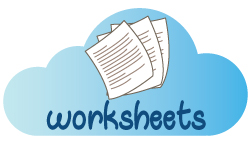What Are the Simple Tenses?
- Grammar Lessons >
- Simple Tense
Overview of Simple Tense:
- What Is the Simple Tense?
- Examples of the Simple Tense
- The Simple Past Tense
- Formation of the Simple Past Tense
- Simple Past Tense for Regular Verbs
- Simple Past Tense for Irregular Verbs
- Simple Past Tense in Sentences
- The Simple Present Tense
- Formation of Simple Present Tense
- Simple Present Tense in Sentences
- The Simple Future Tense
- Formation of Simple Future Tense
- Simple Future Tense in Sentences
- Simple Tense - Quiz
What Is the Simple Tense?
The simple tense is the tense at its most basic form. The simple tense includes the simple past, simple present, and simple future.
Examples of the Simple Tense
Simple Past: We studied.
Simple Present: We study.
Simple Future: We will study.
The Simple Past Tense
The simple past tense expresses an action completed in the recent or distant past, regardless of the duration in which it happened.
Formation of the Simple Past Tense
While we mostly form the simple past of regular verbs in three ways, we don't have a specific rule for irregular verbs.
Simple Past Tense for Regular Verbs
Add -d, -ed, or -ied to the end of the regular verb to create its simple past.
Examples:
live-lived
jump-jumped
carry-carried
Simple Past Tense for Irregular Verbs
Irregular verbs form the simple past in unpredictable ways. Some modify themselves slightly, some transform completely, and some don't change at all.
Examples:
drink-drank
eat-ate
go-went
cost-cost
Simple Past Tense in Sentences
Sara baked chocolate cookies. (bake-baked)
David completed his assignment. (complete- completed)
We sang and danced. (sing-sang, dance-danced)
The man burst into tears. (burst-burst)
The Simple Present Tense
The simple present tense expresses an action happening in the present. To be more specific, the simple present tense denotes a habit, a general truth, or an unchanging situation.
Formation of Simple Present Tense
We use the root form of the verb to denote the simple present, except in the third-person singular which ends in -s most of the time and -es sometimes.
first-person singular: I read.
first-person plural: We read.
second-person singular: You read.
second-person plural: You read.
third-person singular: He/She/It reads. (Note the change.)
third-person plural: They read.
Simple Present Tense in Sentences
Children like reading.
The moon appears at night.
Shawn eats dinner at 6 pm.
The Simple Future Tense
The simple future tense expresses an action that will occur at any time later than now.
Formation of Simple Future Tense
We add "will" or "shall" before the verb to from the simple future. "Shall" is used with "I" and "we" and is more formal than "will".
Simple Future Tense in Sentences
Judith will feed her dog.
We shall study the lesson.
My parents will travel soon.
Take a Simple Tense Quiz Now!

Boost your skills using our free printable Verb Tenses Worksheets.

